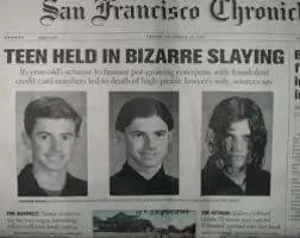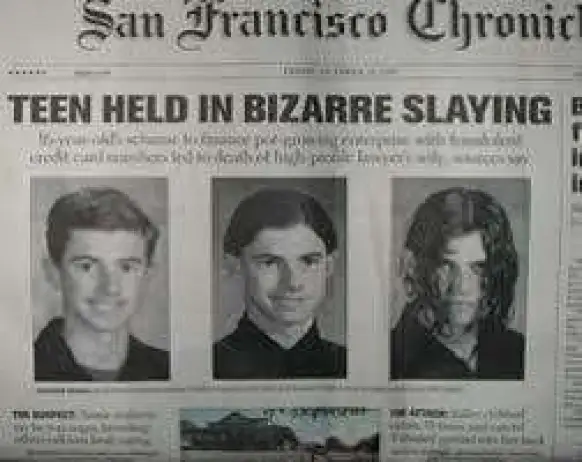Scott Dyleski was a sixteen year old from California when he would murder Pamela Vitale
According to court documents Scott Dyleski would murder Pamela Vitale after striking her multiple times and carving a satanic symbol into her back
Scott Dyleski would be arrested, convicted and sentenced to life in prison without parole. however the US Supreme Court would rule that sentencing juveniles to life without parole was unconstitutional so his sentence was reduced to life with the possibility of parole
Scott Dyleski Photos

Scott Dyleski FAQ
Where is Scott Dyleski now
Scott Dyleski is currently incarcerated at California State Prison, Corcoran
When is Scott Dyleski release date
Scott Dyleski is serving life in prison however is eligible for parole in 2029
Scott Dyleski Case
A former Lafayette resident originally sentenced to life without parole in the maniacal murder of his neighbor now has a shot at freedom in 2030, thanks to a new law that reduces life sentences for teens tried as adults.
Scott Dyleski, in Corcoran State Prison for the murder of Pamela Vitale, was given a reduced sentence of 25 years to life, in place of a prison term that gave him chance of parole. Dyleski’s reduced term, affirmed in an appellate court decision released Thursday, came after the passage of Senate Bill 394, which gives juveniles tried as adults and sentenced to life without parole a chance for eventual freedom.
Dyleski was 16 in 2005, when he broke into the home of his neighbors and stabbed to death Pamela Vitale, carving a symbol into her body and cutting a large wound into her stomach, according to prosecutors. During his trial the following year, prosecutors presented journal entries and eyewitness evidence that suggested Dyleski had fantasized about torturing and killing people.
In 2005, Vitale and her husband, prominent defense attorney Dan Horowitz, were refurbishing their home. Horowitz discovered his wife’s body and testified during trial. Contacted Friday, he said he lobbied against SB 394, but as a defense attorney understood its intent; he said he has seen cases where juvenile gang members were sentenced to life for things like sitting in a car during a drive-by shooting.
“I understand the sentiment behind that,” Horowitz said. “The trouble is they haven’t limited it, so you give people who enjoy torturing and murdering others the same rights as someone who didn’t hurt anyone and was just an aider and abettor.”
Proponents of the bill have pointed out that there is no guarantee of parole, and said the granting that possibility after 25 years would give juvenile offenders motivation to earn their freedom. They also cited studies saying juveniles’ minds are underdeveloped.
Lawmakers estimated there are roughly 300 juvenile offenders statewide eligible for sentence reductions. Many of them, including Scott Dyleski, were in the process of petitioning for re-sentencing under a 2014 state Supreme Court case that opened the door for juvenile offenders serving life without parole to be freed.
The sentence of 25 years to life is what Dyleski asked for at a court hearing last year at a re-sentencing petition. There, he took the stand and denied killing Vitale.
“I did not kill her,” Dyleski said in the June 2017 hearing. He then tearfully admitted to committing credit card fraud and said he dreamed of suicide, not murder, as a teen.
A judge firmly denied Scott Dyleskis petition the following month, pointing out the heinous nature of the crime and his refusal to accept responsibility. Dyleski appealed the decision, but when SB 394 came into effect — thereby reducing his sentence — the appeal became a moot point, appellate judges wrote in their decision.
Under the law, a parole board that denies suitability can set a new hearing as soon as three years down the line, or as long as 15 years, depending on the facts of the case.

